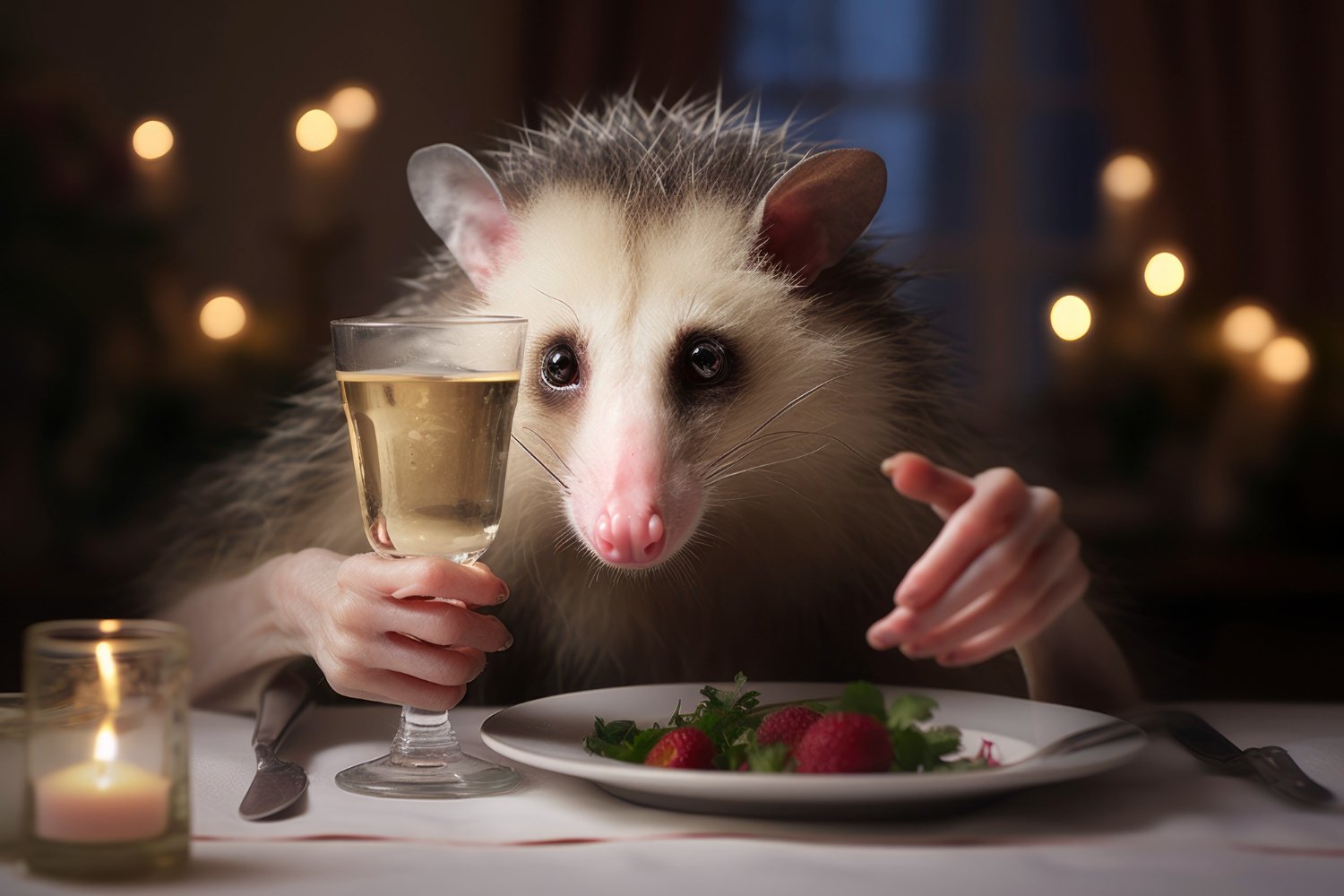Introduction
Why Do Raccoons Wash Their Food? Raccoons are among North America’s most fascinating and adaptable animals. Known for their distinctive “mask” of fur around their eyes and their dexterous front paws, these nocturnal creatures have captured the curiosity of wildlife enthusiasts and researchers alike. One of their most intriguing behaviors is their tendency to “wash” their food before eating it. This behavior has puzzled many, leading to a myriad of questions about its purpose and function. In this comprehensive article, we’ll dive deep into the reasons behind this peculiar habit, exploring scientific explanations, historical perspectives, and the impact on raccoon behavior and ecology.
Understanding Raccoon Anatomy and Behavior
Physical Characteristics
Raccoons (Procyon lotor) are small to medium-sized mammals with a characteristic bushy tail and a distinctive mask-like pattern of fur around their eyes. They have strong, nimble front paws that are remarkably similar to human hands, allowing them to grasp and manipulate objects with impressive dexterity.
Natural Habits
As omnivores, raccoons have a varied diet that includes fruits, nuts, insects, small animals, and even human food scraps. They are primarily nocturnal, meaning they are most active during the night and sleep during the day. Their diet and behavior have evolved to help them thrive in diverse environments, from forests and wetlands to urban areas.
The “Washing” Behavior: What Is It?
Description of the Behavior
Why Do Raccoons Wash Their Food: The term “washing” refers to the behavior where raccoons dip their food into water before eating it. This behavior is most commonly observed when raccoons are eating in water or when they have access to a water source like a stream or a pond. They use their paws to manipulate the food and the water, giving the appearance that they are washing it.
Historical Observations
This behavior has been documented for centuries. Early naturalists and observers noted the raccoon’s tendency to immerse its food in water, leading to various hypotheses about the purpose of this behavior. The term “washing” may be a bit of a misnomer, as it implies a hygiene-related motive, which might not fully capture the complexity of the behavior.
Scientific Explanations
The Dexterity Hypothesis
One of the leading explanations for this behavior is the raccoon’s exceptional dexterity. Their front paws are highly sensitive and are equipped with a high density of tactile receptors. By dipping their food in water, raccoons may be enhancing their ability to sense the texture and characteristics of the food. This tactile feedback could help them determine if the food is suitable for consumption.
The “Washing” Misconception
While it appears that raccoons are washing their food, scientific research suggests that this behavior may not be related to hygiene. Instead, it could be a form of manipulation that helps them handle and examine their food more effectively. The “washing” behavior might be a way for raccoons to test the edibility of their food, particularly in aquatic environments where they frequently forage.
Comparison with Other Species
Raccoons are not unique in their food-handling behaviors. Many animals engage in similar actions. For instance, otters are known to use rocks to crack open shellfish, and birds like crows use tools to extract insects. Comparing these behaviors helps us understand the evolutionary advantages of food manipulation and the role it plays in an animal’s survival.
The Role of Environment in Behavior
Urban vs. Natural Environments
Why Do Raccoons Wash Their Food: Raccoons in urban environments may exhibit different behaviors compared to their wild counterparts. In cities, raccoons often forage through garbage and other human-related food sources. The availability of water sources and the nature of the food they encounter may influence their “washing” behavior. Urban raccoons might have adapted their behavior to fit their new environment, using available resources in creative ways.
Seasonal Variations
Seasonal changes can also impact raccoon behavior. During certain times of the year, such as before hibernation or during mating season, raccoons might display variations in their food-handling habits. Understanding these seasonal patterns can provide insights into how environmental factors influence their behavior.
Implications for Wildlife Management
Human-Raccoon Interactions
Raccoons’ foraging behavior can lead to conflicts with humans, especially when they invade urban areas in search of food. Understanding their natural behaviors and motivations can help in managing these interactions more effectively. For example, providing raccoons with appropriate food sources or implementing deterrent measures can help mitigate conflicts.
Conservation Efforts
Studying raccoon behavior contributes to broader wildlife conservation efforts. By understanding how raccoons interact with their environment and how their behaviors adapt to changes, conservationists can develop strategies to protect their habitats and ensure their survival in both natural and urban settings.
Fun Facts About Raccoons
Intelligence and Problem-Solving Skills
Why Do Raccoons Wash Their Food: Raccoons are known for their intelligence and problem-solving abilities. They can open jars, unlock cages, and even figure out how to navigate complex environments. This high level of cognitive function contributes to their success in diverse habitats.
The Origin of the “Washing” Behavior
The “washing” behavior might have originated from the raccoon’s evolutionary history as a species that frequently foraged in aquatic environments. Their ancestors might have developed this behavior as a survival adaptation, which has been carried forward through generations.
Conclusion: Why Do Raccoons Wash Their Food?
Why Do Raccoons Wash Their Food? The raccoon’s food “washing” behavior is a fascinating example of how animal behaviors can be adapted to their environments and evolutionary history. While it might initially appear to be a simple act of hygiene, the behavior is more likely related to the raccoon’s need for tactile feedback and manipulation of their food. Understanding this behavior not only provides insights into raccoon ecology but also helps us manage human-wildlife interactions more effectively. As we continue to study these remarkable creatures, we gain a deeper appreciation for their complexity and adaptability in the natural world.
Frequently Asked Questions
Q:1 Why do raccoons wash their food?
A:1 Raccoons may dip their food in water to enhance their tactile sensation, helping them better handle and examine their food. This behavior might not be related to hygiene but rather to their need for better sensory feedback.
Q:2 Do all raccoons exhibit this behavior?
A:2 While many raccoons exhibit the “washing” behavior, it can vary depending on their environment and the type of food they are consuming. Urban raccoons might show different food-handling habits compared to their wild counterparts.
Q:3 How can I prevent raccoons from invading my trash?
A:3 To prevent raccoons from getting into your trash, secure your garbage cans with tight-fitting lids, use raccoon-proof containers, and avoid leaving food scraps outside. Properly sealing your trash can help reduce the likelihood of attracting these clever animals.
Q:4 Are there any other animals that display similar behavior?
A:4 Yes, other animals like otters and certain bird species also engage in food-manipulation behaviors. These actions serve similar purposes, such as testing the edibility of food or enhancing sensory feedback.
See More



